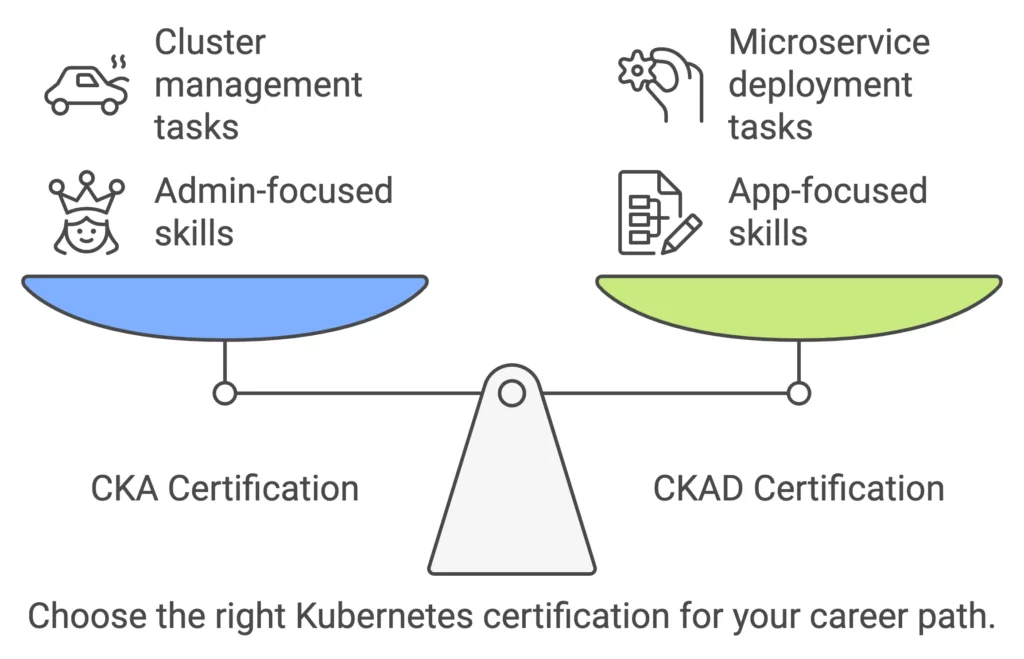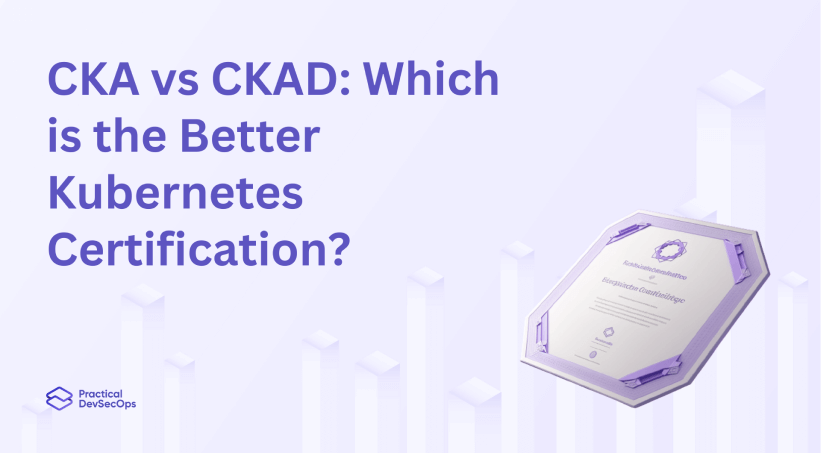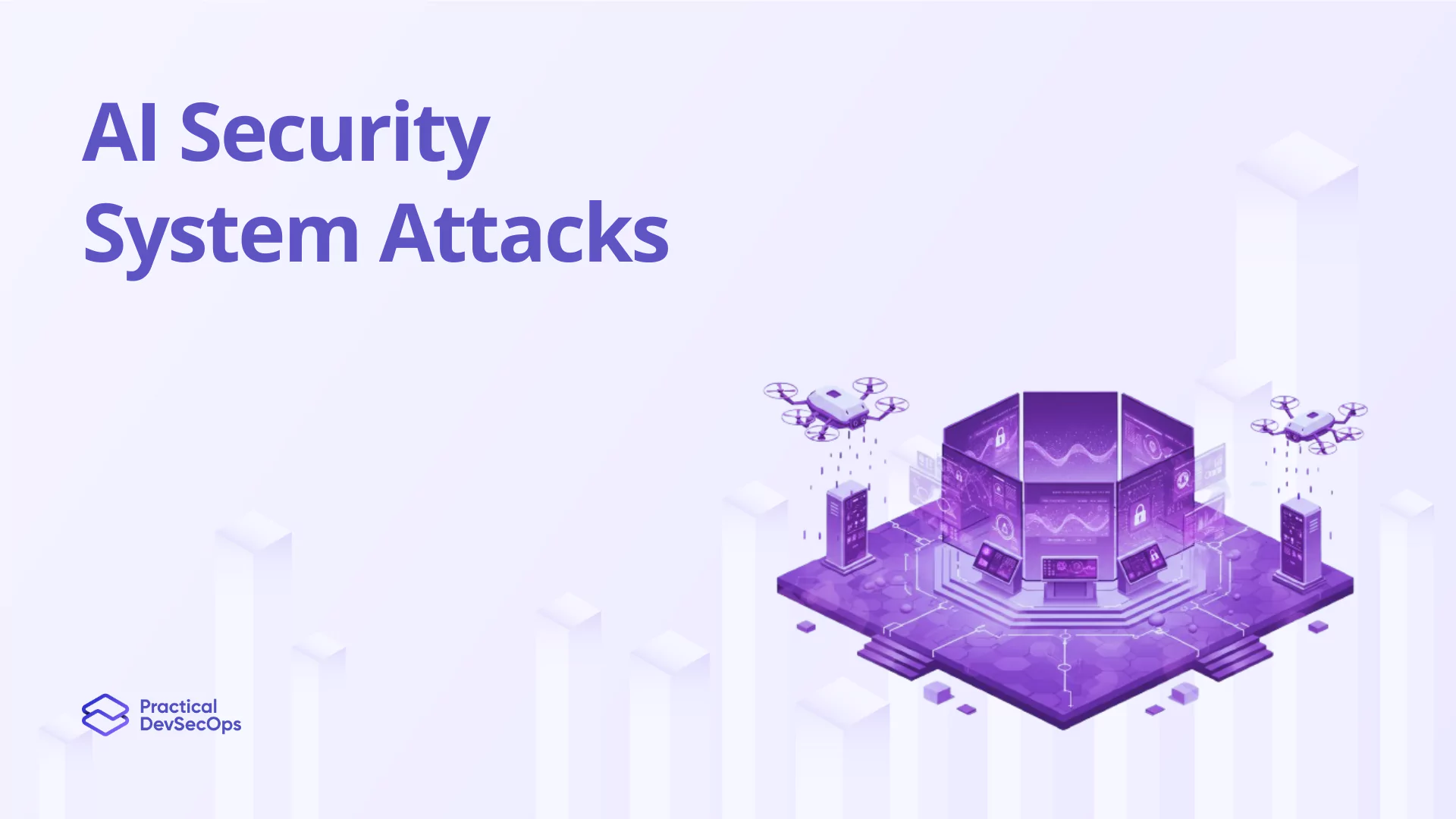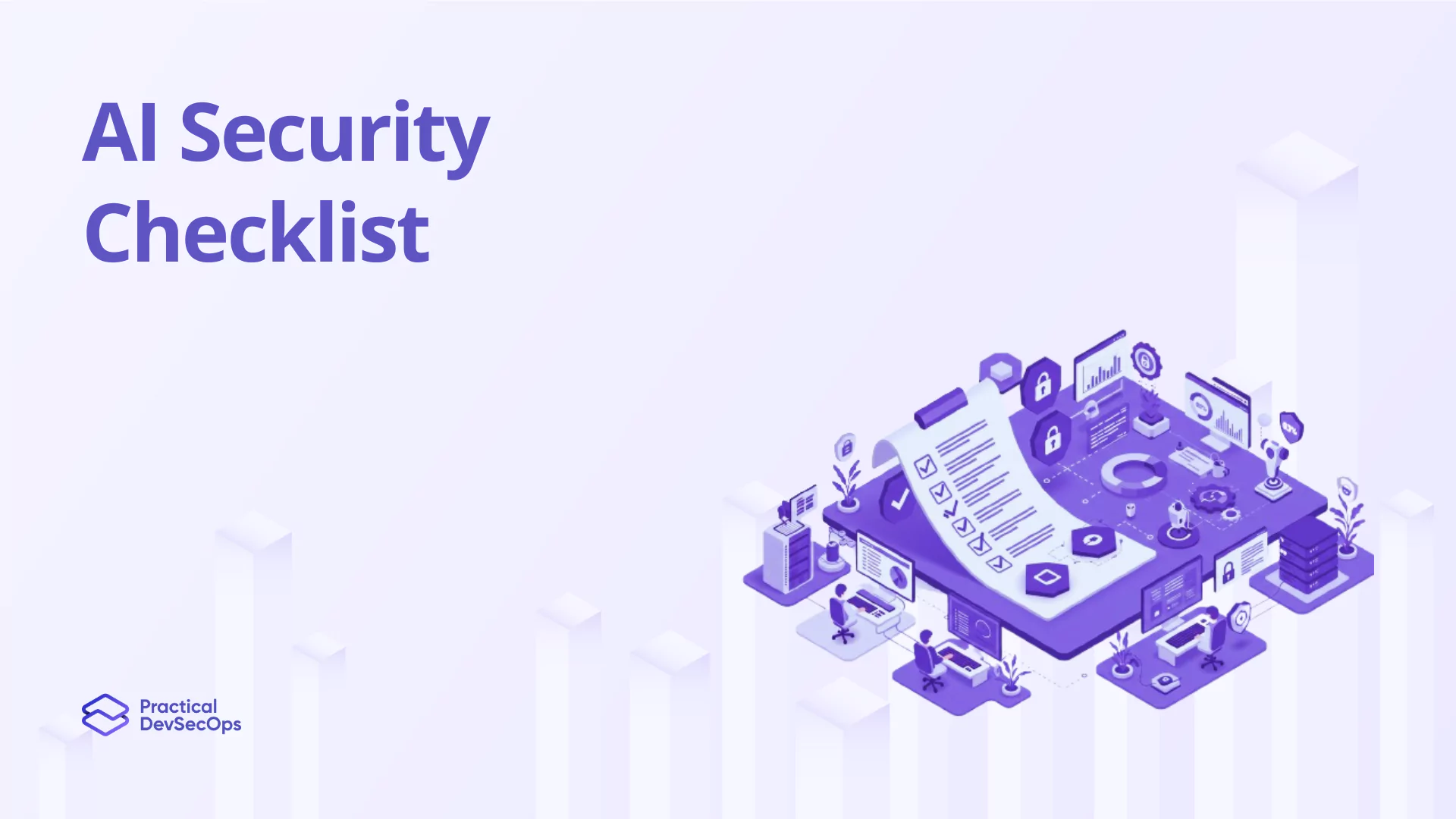In the wake of the surging popularity of Kubernetes, there is significant demand for experts who possess extensive knowledge of Kubernetes. This article compares CKA v/s CKAD to assist individuals in making informed decisions regarding which Kubernetes certification to pursue.
The Certified Kubernetes Administrator (CKA) and Certified Kubernetes Application Developer (CKAD) certifications have recently undergone significant updates. Here’s a summary of the latest changes that students should be aware of for both certifications:
CKA Certification Updates
Key Changes Effective January 15, 2025
New Topics:
The CKA exam will include a focus on real-world Kubernetes skills, such as:
Gateway API: Managing Ingress traffic.
Helm and Customize: Tools for managing Kubernetes applications.
Custom Resource Definitions (CRDs) and Operators: Understanding these will be essential for extending Kubernetes capabilities.
Emphasis Areas:
Storage: Dynamic volume provisioning and management of volume types, access modes, and reclaim policies.
Troubleshooting: Expanded focus on diagnosing network services and connectivity issues, as well as cluster and node diagnostics.
Workloads & Scheduling: New focus on Pod admission, node affinity, and autoscaling.
The Certified Kubernetes Administrator (CKA) exam in 2025 has specific weightage assigned to various domains, which are crucial for candidates to understand, preparing effectively. The exam consists of practical, hands-on tasks that candidates must complete within a two-hour timeframe. Here are the details regarding the weightage of each domain:
CKA Exam Weightage Breakdown:
| Domain | Weight |
| Cluster Architecture, Installation & Configuration | 25% |
| Workloads & Scheduling | 15% |
| Services & Networking | 20% |
| Storage | 10% |
| Troubleshooting | 30% |
CKAD Certification Updates
Curriculum Changes
The CKAD exam has incorporated several new topics:
Custom Resource Definitions (CRDs): Candidates must understand how to create CRDs and interact with custom objects.
Authentication and Authorization: This topic is now included, focusing on permissions for applications to access the Kubernetes API using role-based access control (RBAC).
Ingress Management: Candidates will need to know how to expose applications using Ingress resources.
Exam Format
The CKAD exam is shorter, consisting of 19 questions over a duration of 2 hours. The passing score is set at 66%.
Certification Validity Changes
Starting April 1, 2024, both CKA and CKAD certifications will have a validity period of 24 months, reduced from the previous 36 months for certifications obtained before this date. This change emphasizes the need for professionals to stay current with evolving technologies in Kubernetes.
Both the CKA and CKAD certifications are evolving to better reflect the skills required in modern Kubernetes environments.
Students preparing for these exams should focus on the newly emphasized topics and understand the structural differences between the two certifications to align their study efforts with their career goals.
The Certified Kubernetes Application Developer (CKAD) exam in 2025 has a structured weightage across various domains that candidates should focus on for effective preparation. The exam is designed to assess the skills necessary to design, build, and deploy cloud-native applications on Kubernetes. Here are the details regarding the weightage of each domain:
CKAD Exam Weightage Breakdown
| Domain | Weight |
| Application Design and Build | 20% |
| Application Deployment | 20% |
| Application Observability and Maintenance | 15% |
| Application Environment, Configuration, and Security | 25% |
| Services and Networking | 20% |
Exam Format
The CKA exam consists of 24 questions over a duration of 2 hours, with a passing score set at 74%.
CKA v/s CKAD: Which is Better Kubernetes Certification?
| CKA | CKAD | CCNSE | |
| Features | No labs: students need to set up labs manually.
No instructor 1:1 support 12 Months Access to online course materials. |
No labs: students have to set up labs manually.
No instructor 1:1 support 12 Months Access to online course materials. |
Self-paced Learning Mode
Browser-based Lab Access 24/7 Instructor Support via Mattermost |
| Course syllabus | Cluster Architecture, Installation, and Configuration,
Services & Networking, Workloads and Scheduling, Storage and Troubleshooting |
Application Design and Build, Application Deployment, Application Observability and Maintenance
Application Environment, Configuration, and Security Services and Networking. |
Introduction to Cloud-Native Concepts and its Security,
Introduction to Microservices Architecture, Containers and Container Security, Introduction to Kubernetes, Hacking Kubernetes Cluster, Kubernetes Authentication and Authorization, Kubernetes Admission Controllers, Kubernetes Data Security, Kubernetes Network Security, Defending Kubernetes cluster. |
| Certification validity | 2 years | 2 years | Lifetime |
| Exam | 2 Hours | 2 Hours | Solve 5 challenges in 6-Hours |
| Pricing | $445 | $445 | $999 |
The main differences between the CKA v/s CKAD certifications are:

Targeted audience: CKA targets System administrators, Platform engineers, DevOps engineers, Cloud engineers and IT professionals. Meanwhile, CKAD’s perfect for those diving into cloud-native microservice apps, crafting, and sailing them into the digital ether.
Exam focus: The CKA certification challenges folks to tackle Kubernetes admin duties like cluster setup, updates, plus switching between networking, storage, and services. On the flip side, CKAD examines your skills in configuring, and showcasing cloud-native apps on Kubernetes.
Course content: Both certifications include the Kubernetes LFS258 course, but CKAD focuses on applications, while CKA covers administration.
Certification validity: Both certifications cost USD 595 and are valid for three years.
Exam duration: Both certifications have a 2-hour exam
Course prerequisites: Both certifications have the exact prerequisites, which are understanding of Linux concepts and command line, package managers, Git and GitHub.
Also Read, CKA vs CKS, What is the Difference
CKA – Certified Kubernetes Administrator
Looking to ace the Certified Kubernetes Administrator (CKA) exam? It’s designed for Kubernetes admins, cloud experts, IT pros, and more, focusing on key administrative skills like cluster setup, updates, and handling networking, storage, and services. The Linux Foundation’s LFS258 course is your go-to for the know-how needed, though you’ll DIY the labs with a guide.
At $595 for a three-year valid cert, it’s an investment in your future in the cloud!
Also read, Is CKS Certification Worth It?
CKAD – Certified Kubernetes Application Developer
Dreaming of diving into cloud-native app development? The CKAD (Certified Kubernetes Application Developer) certification is your ticket! It will test individuals in designing, building, and managing cloud-native applications on Kubernetes. Gear up with the Kubernetes Fundamentals LFS258 course from The Linux Foundation. It aims to prepare you for the CKAD exams.
With a fee of $595 and validity for three years, it’s a solid investment in your cloud-savvy future.
Target Audience: Software developers, Application developers, DevOps engineers, Cloud developers and Development teams.
Which Certification students should target after CKA Exam?
After CKA, I’d recommend the Certified Kubernetes Security Specialist (CKS) certification. It’s a natural progression that builds on your CKA knowledge while diving deep into Kubernetes security practices. The Certified Kubernetes Application Developer (CKAD) is another solid option if you’re interested in application development.
Which Certification students should target after CKAD Exam?
I’d definitely recommend going for the Certified Kubernetes Security Specialist (CKS). It’s the most advanced of the three main Kubernetes certifications and focuses on critical security concepts like cluster hardening, system hardening, and supply chain security. It’s highly valued in the industry and will round out your Kubernetes expertise nicely.
Helpful Tips for the students to follow when appearing for the CKA and CKAD exams?
- Master Imperative Commands – Creating resources via kubectl commands is faster than YAML. Focus on kubectl run, expose, and create commands.
- Bookmark Documentation – Save links for networking, storage, and troubleshooting sections in Kubernetes docs for quick access.
- Use Multiple Terminals – Work with separate windows for commands, logs, and YAML editing to improve efficiency.
- Time Management – Read all questions first, tackle easier ones initially. Don’t spend over 10 minutes per question.
- Practice with Killer.sh – Use exam simulators to understand time pressure and question formats.
- Focus Core Topics – For CKA: cluster maintenance, troubleshooting, networking. For CKAD: deployments, configurations, observability.
- Master Vim Basics – Learn essential vim operations for quick YAML editing.
- Verify Solutions – Always test your work before moving to the next question.
What is the other best alternative for the among this both CKA and CKAD Certification?
Learning Outcomes of Certified Cloud-Native Security Expert
You’ll work with real security tools to detect and defend against Kubernetes attacks. The course teaches you to build secure microservices following OWASP API standards and Top 10 guidelines. You’ll dive into Docker’s architecture to spot container vulnerabilities and learn to fix misconfigured Kubernetes workloads.
The course shows you how to set up security policies for authentication and network protection. You’ll also master encryption techniques for managing sensitive data and Kubernetes secrets.
CCNSE Course Benefits:
The program offers flexible learning through self-paced modules, labs that run in your browser, and round-the-clock instructor support on Mattermost.
CCNSE vs CKA/CKAD/CKS Comparison:
CCNSE focuses more deeply on cloud-native security than CKS, making it more comprehensive. While CKS specifically covers Kubernetes security, CCNSE expands into Docker security, microservices protection, and API security. However, CKS remains the industry-standard certification for Kubernetes security and is officially recognized by the Cloud Native Computing Foundation (CNCF), which gives it an edge in terms of credibility and market recognition.
What score is needed to pass CKA and CKAD exam?
To pass both CKA and CKAD exams, you need a minimum score of 66%.
What is the Exam pass percentage required to get Certified Cloud-Native Security Expert Certification?
To earn the Cloud-Native Security Expert (CCNSE) certification, you need to score at least 80%.
Conclusion
Selecting CKA or CKAD hinges on your Kubernetes focus: CKA for administration expertise, ideal for IT and cloud professionals, and CKAD for developers passionate about crafting cloud-native applications. Your career aspirations and interest in Kubernetes will guide your choice, ensuring you excel in your desired Kubernetes domain.







0 Comments